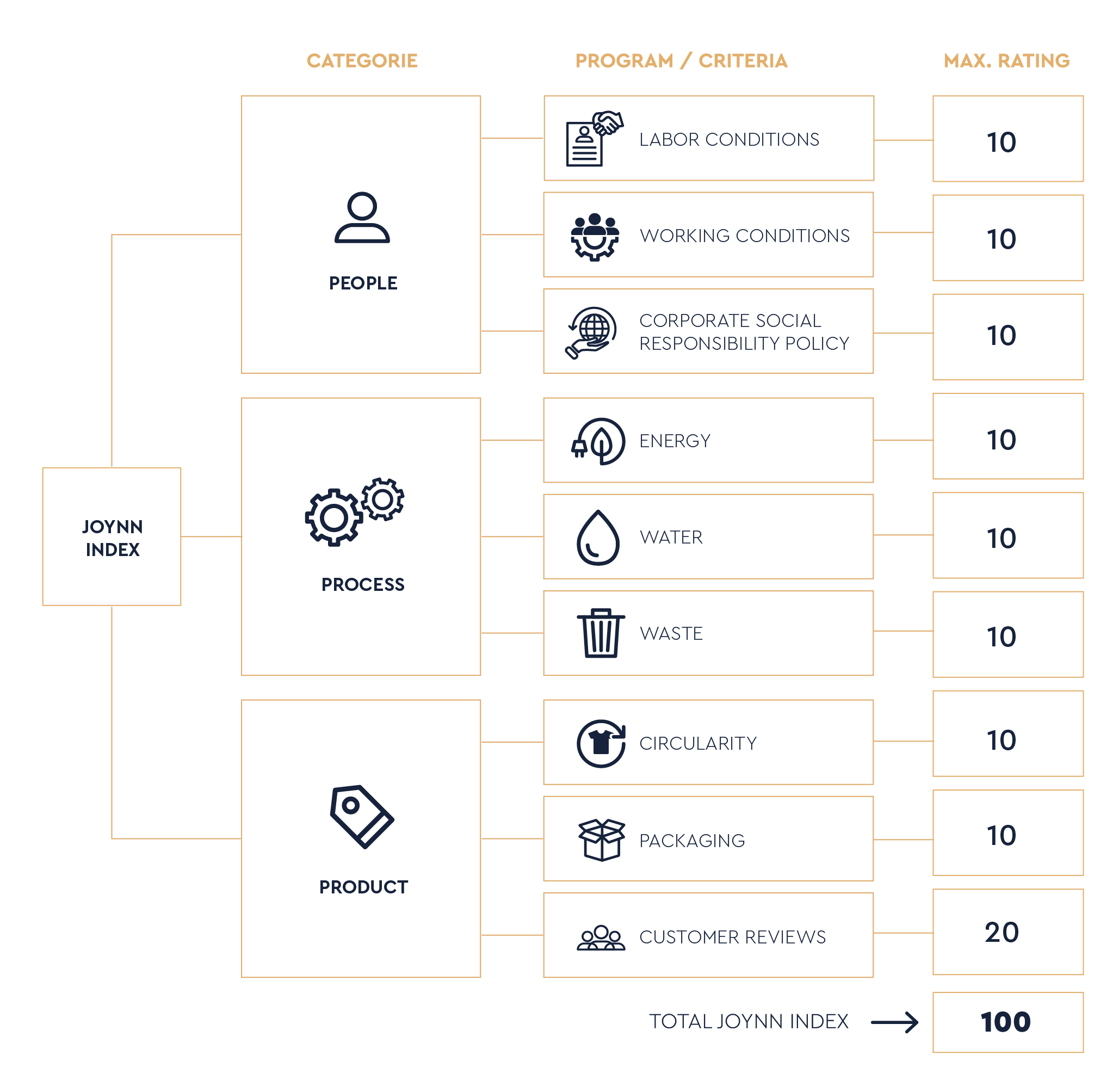LAW AND REGULATIONS
JOYNN works with manufacturers, brands and retailers to collect environmental and social data on product and facility level, allowing them to comply with the requirements of laws and regulations.
For the European Union a few laws and regulations are related to product transparency and circularity.

Corporate Sustainability Due Diligence Directive (CSDDD)
On 25 July 2024, the Directive on corporate sustainability due diligence (Directive 2024/1760) entered into force. The aim of this Directive is to foster sustainable and responsible corporate behaviour in companies’ operations and across their global value chains. The new rules will ensure that companies in scope identify and address adverse human rights and environmental impacts of their actions inside and outside Europe.
Ecodesign for Sustainable Products Regulation (ESPR)
The ESPR aims to significantly improve the sustainability of products placed on the EU market by improving their circularity, energy performance, recyclability and durability.
It will also play a central role in developing a strong, well-functioning single market for sustainable products in the EU.
By doing so, a significant step will be taken towards better protecting our planet, fostering more sustainable business models and strengthening the overall competitiveness and resilience of the EU economy.
Digital Product Passport (DPP)
The ESPR will introduce a Digital Product Passport (DPP), a digital identity card for products, components, and materials, which will store relevant information to support products’ sustainability, promote their circularity and strengthen legal compliance.
This information will be accessible electronically, making it easier for consumers, manufacturers, and authorities to make more informed decisions related to sustainability, circularity and regulatory compliance. It will also allow custom authorities to perform automatic checks on the existence and authenticity of the DPPs of imported products.
Information to be included in the DPP will be identified by the Commission (EU), in close consultation with all relevant stakeholders, and will depend on the specific product in question.

